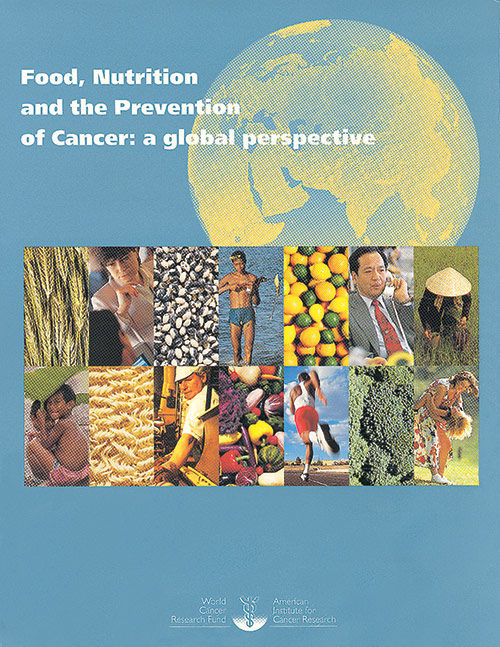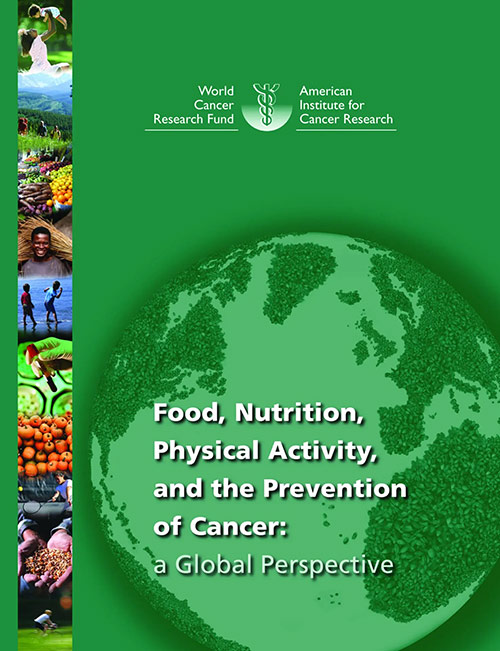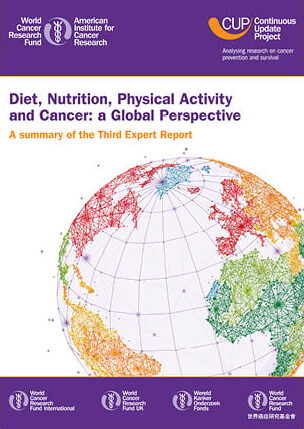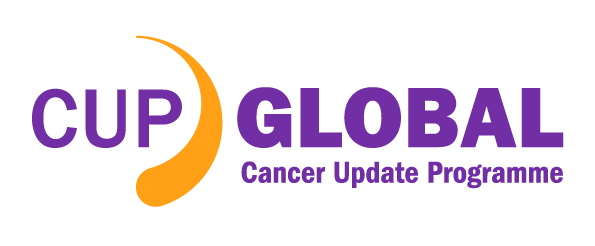Our history
We’ve been investigating the link between diet, physical activity and lifestyle and cancer since 1982. Here are just some of the highlights over the past 40+ years.
On this page
1980s
1982: American Institute for Cancer Research (AICR) is founded and develops its first set of dietary health guidelines.
1983: AICR begins funding research and awards its first grants.
1984: AICR’s first Dietary Guidelines to Lower Cancer Risk are published in the New York Times – these are now called the Cancer Prevention Recommendations

1990s
1990: AICR launches its inaugural Scientific Research Conference
1990: World Cancer Research Fund (WCRF) is founded in London
1991: World Cancer Research Fund announces its grant programme – funding research to advance knowledge of cancer prevention
1992: AICR funds revolutionary research on broccoli that finally led the way to major government funding for ongoing research into identifying more cancer fighting foods
1992: World Cancer Research Fund funds studies on diet and cancer at Birmingham, London & Belfast universities – the first studies of their kind
1993: WCRF/AICR convenes an Expert Panel of world class scientists to examine the evidence around diet, nutrition and cancer.
1994: Wereld Kanker Onderzoek Fonds (WKOF) is established in Amsterdam
1997: We publish our first Expert Report – “Food, Nutrition and the Prevention of Cancer: a global perspective” which outlines how cancer risk is affected by the choices we make each day.
1997: World Cancer Research Fund HK is founded in Hong Kong
1999: World Cancer Research Fund International is officially established, bringing together the network of national charities and leading the scientific research programme

2000s
2001: AICR launches The New American Plate – a novel, fresh approach to healthy eating, with a focus on changing the balance between portions of plant-based versus animal-based foods on our plates and the portion sizes we eat.
2001: AICR appoints first Marilyn Gentry Fellow at University of North Carolina, Chapel Hill – Marilyn Gentry is a co-founder and President of World Cancer Research Fund International
2005: World Cancer Research Fund joins the National Institute for Health Research (NIHR) – a consortium of disease prevention charities and government health departments, pooling funds to invest in major, high impact research projects.
2007: We publish our second Expert Report. As well as focusing on food and nutrition, it also included scientific links between physical activity and cancer risk. The evidence from this report led to an update of Cancer Prevention Recommendations.
2008: The Continuous Update Project is launched by World Cancer Research Fund International – the largest and most up-to-date source of knowledge in the world on the role of nutrition and lifestyle in relation to cancer.
2008: WKOF starts its 5-year collaboration with Wageningen University and Research, focused on prevention, recurrence and survival of colon cancer.
2009: We launch our Policy and Action for Cancer Prevention report – setting out recommendations for governments on how to help people be healthier. The launch becomes the most-read story on the BBC News website in February 2009.
2009: World Cancer Research Fund becomes a Change 4 Life partner, connecting with the UK Department of Health’s nationwide campaign

2010s
2011: World Cancer Research Fund representatives are invited to attend the first-ever United Nations summit for the discussion of prevention and control of diseases, such as cancer.
2012: More than 3m people in the UK receive information from World Cancer Research Fund on actions they can take to lower their cancer risk.
2013: World Cancer Research Fund International launches NOURISHING – a database to highlight what countries are doing to empower people to eat more healthily
2015: The US government acknowledges AICR’s Recommendations for Cancer Prevention. Government experts heavily cite AICR’s Recommendations when drafting the Dietary Guidelines for Americans.
2016: We’re officially recognised by the World Health Organization (WHO) as the world’s leading authority on the link between diet, weight, physical activity and the prevention of cancer.
2018: We launch our comprehensive Third Expert Report on cancer prevention and survivorship, including updates on lung, mouth, pharynx and larynx cancer. It’s the largest ever study on diet, lifestyle and cancer.
2018: World Cancer Research Fund launches the Cancer Health Check, a new online tool to help people assess how their lifestyle choices stack up against our 10 Cancer Prevention Recommendations.
2018: WKOF introduces the Purple Ribbon with the message ‘You don’t face cancer alone’. Since then, the ribbon has become a national symbol of support, solidarity, love and hope.
2018: As part of the EU-funded CO-CREATE project, World Cancer Research Fund International joins 13 other research and advocacy organisations to work with young people with an aim to reduce childhood obesity. The aim is to reduce childhood obesity and associated co-morbidities in Europe and the rest of the world.

2020s
2020: We increase our focus on supporting cancer survivors, by providing practical support, as well as funding more research to help improve survival rates and reduce the risk of recurrence.
2020: World Cancer Research Fund International launches MOVING – a new database to highlight what countries are doing to empower people to move more
2020: WKOF begins its collaboration with the Princess Maxima Center for paediatric oncology – via a standalone website with information about nutrition and childhood cancer.
2022: We launch our Global Cancer Update Programme (CUP Global), that analyses the largest database of global cancer prevention research in the world, in partnership with Imperial College, London. The new approach will have four key areas of focus: Cancer incidence; cancer survivorship; cancer mechanisms; obesity
2024: We publish two new CUP Global Reports, with updated diet, nutrition and physical activity guidance for anyone living with a breast cancer or colorectal cancer diagnosis
